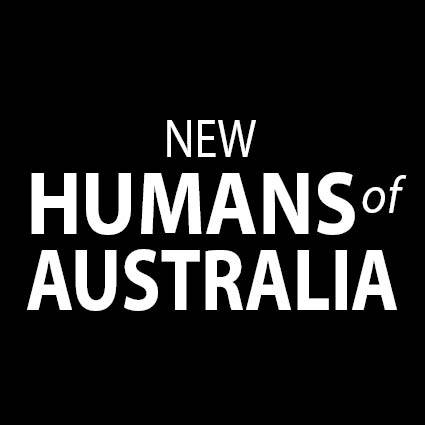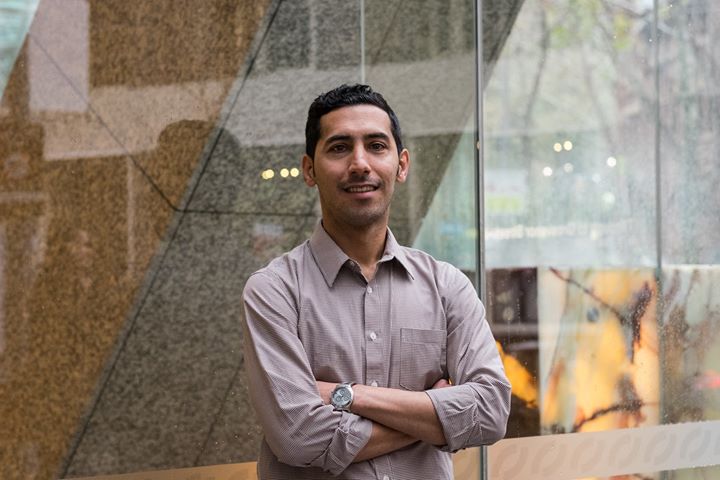(3/3) In the distance, we could see an island, and then the port of a tiny village. The fisherman had already made a few phone calls along the way and when we got there, after one or two hours, hundreds of people had gathered. They put us in a big room, and police and immigration came. We couldn’t run away again – it was too much. Doctors came, media came – it was huge. We gave some interviews.
One day passed but we didn’t hear any news of the other people. We kept asking, ‘Where are the others?’ Some of the people who had made it still had family in the water. But nothing happened. The second day we went on hunger strike. There was one person who had lost 11 of his family members, and we were holding on to him to stop him killing himself. He was yelling and breaking windows, demanding to know where his family was. But there was still no news.
On the third day, they sent us to a motel. Every morning, there were 10 cameras from the media outside. It was very stressful. Everyone was crying. Finally, we found out they had found 13 survivors out of the 40 people we had left behind. Some of them had been on that boat for three days without water or food. Some people had tried to swim and find land but they never came back.
After that, they sent us to a detention centre in Surabaya. 16 of us from the boat were all in one room with a toilet and a shower in the corner. Everyone was dirty. Everyone had been through trauma, stress and anxiety. But they locked the door and wouldn’t let us go out into the yard. They put the food through the bars so we could eat. We were there for almost two months. It was the worst part of my life. I even passed out a few times just because I couldn’t take it.
Finally, they said we could come out into the yard and have fresh air, and we saw that outside, it was just like a jail. After a while, we started talking to others who were more experienced, and decided that we had to run away. We took a few days to observe the situation, and we managed to find a blind spot where we could escape over the wall. One day, some guys staged a fight on the other side so we could escape using our sarongs tied together as ropes. On the other side of the wall was the girlfriend of one of the guys I was escaping with. She had flown all the way from Jakarta to help us, and took us in a van to a hotel in Surabaya where we changed our clothes and ate. Then we drove all the way back to Jakarta, 24 hours non-stop. She was so brave – I’d really like to find her again one day to thank her.
I’ll never forget when I saw those buildings and lights again, I was so upset and frustrated because I just couldn’t seem to leave. Four or five times it hadn’t worked, and I’d lost my friends and seen so many people die.
Finally, I went to the UNHCR and told them my story, and three years later, I got accepted as a refugee to come to Australia. In that time, I was very lucky to meet an incredible American man who supported me and hundreds of other asylum seekers the whole time I was waiting. He owns a successful business there, but he’s a Christian who believes it is his duty to help people like me. I’m so grateful to him, and to all the other people who helped me in that time.
When I got to Brisbane, I did first did English, followed by a Tertiary Preparation Course. Next, I got an offer from my first preference, University of Sydney, and I’m now doing second-year Commerce there. It’s really hard, especially with English as my second language, but I love it.
I recently had the opportunity to speak with Malcolm Turnbull on Q and A. And what I said was this: the Australian government thinks that they need to put people smugglers out of business, and I agree with that because they only care about money, and not about the people. But I don’t think that’s a good justification to lock people up on Manus Island and Nauru. I believe it would be better to use all that capital to strengthen the UNHCR, and to increase the number of people that can be helped worldwide. I hope one day we can find a solution to this problem.
Yaser
Iran
Arrived 2014
I need your help! Can you offer your support to New Humans of Australia on an ongoing basis? For as little as $1 a month, you can become a patron and get all stories direct to your inbox. Or become a strong supporter for only $10 per month and get a free copy of the amazing book! Whatever you choose, it all adds up and helps me to do my work. Thank you to all my patrons, supporting the arts and supporting social change! ❤️ ❤️ ❤️
www.patreon.com/newhumansofaustralia
Photographer: Simone Cheung www.facebook.com/simonecheungphotography

